June 26th, 2013 §
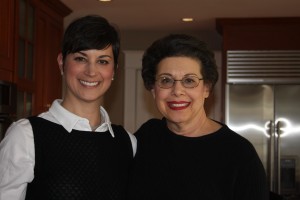 I’ve again invited my mother, Dr. Rita Bonchek, to write a piece for the blog. Her previous posts on the difference between guilt and regret, grieving the death of a parent, what it’s like to read my blogposts about cancer, and how to help children understand death have been well-received. As a psychologist specializing in grief and loss I think her perspective and ability to share insights are welcome additions to the posts I make. I know that she gains comfort from talking with other parents who have children with cancer and sharing their feelings about the way that cancer has affected their roles as parents (and often as grandparents). Her post appears below.
I’ve again invited my mother, Dr. Rita Bonchek, to write a piece for the blog. Her previous posts on the difference between guilt and regret, grieving the death of a parent, what it’s like to read my blogposts about cancer, and how to help children understand death have been well-received. As a psychologist specializing in grief and loss I think her perspective and ability to share insights are welcome additions to the posts I make. I know that she gains comfort from talking with other parents who have children with cancer and sharing their feelings about the way that cancer has affected their roles as parents (and often as grandparents). Her post appears below.
I think the only thing I would say that I might disagree with here is that I don’t think it has to always be a one way street. Mom refers to a time when I was helping her with problems she had in her own life. Yes, perhaps it’s important to be aware of when you are asking your child for help or advice. However, if this is the way your relationship is (ours is, for example), then I believe that maintaining some of this dynamic adds to the sense of “normalcy” that may be elusive but also can be comforting to both parties. That is, if I am not in an immediate medical crisis, helping my mother with a problem she is having feels good to me, rewarding, reminiscent of the way things were before. If the street is always one way, that adds to the feelings of separateness between us, a strong reminder that everything is different.
A suggestion we both have is to focus more on parents taking care of themselves, finding ways to cope in a way that is right for them. Certainly parents and children do not always have the same strategies to deal with medical crises. The parent also may need support to deal with his/her grief during this fragile time. Individuals may find help in talking to a therapist or other supportive figure or attending a support group for parents.
There are constant ebbs and flows in the parent/child relationship based on how treatments are going, anxiety about upcoming tests or bloodwork, and the side effects of treatments. It may not always be clear how much the parent needs to be parent at any given time. Open communication is so important. One of the hardest conversations my mother and I had recently was one in which I openly laid out some ways in which she could be more helpful to me now. That conversation led to a wonderful new phase of support. She feels good that she knows better what I need, how to be helpful to me and to my family. I cannot expect her to be a mind-reader, and the ways that I need support change with how my treatments are going. I will be undergoing treatment for the rest of my life, so it’s important that we are as honest and supportive of each other as possible. I know that she has her own challenges in dealing with my diagnosis. She feels good now knowing some of the things she can do that are most helpful. I truly believe that is what makes a parent feel good is to know they are a help, rather than an additional source of stress for their child during this difficult time.
My mother and I both hope that this piece will be an introduction to this topic. There is so much to say about changing relationships during medical crises. Perhaps today’s post will allow you to raise some of these topics with a family member.
……………………………………
Dr. Rita Bonchek writes:
Throughout this blogpost, I repeatedly refer to children. Even though adult in years, they are our children. When they are diagnosed with cancer, the relationship between parent and child will, by necessity, change. I would like to suggest how parents can strengthen the relationship and cope more effectively at this time.
When Lisa completed cancer treatment after her initial diagnosis (double mastectomy and chemotherapy in 2007, oophorectomy in 2008), everyone, including her doctors, believed that there was an infinitesimal chance that the cancer would return: that period of time was in the past and life would move forward. When the cancer returned in the form of an incurable metastasis in 2012, we were all devastated.
Families have one type of relationship when all of its members are healthy and a different type when one member is ill. But cancer isn’t necessarily just being ill for a period of time, recovering and continuing on with life. Cancer can be a life and death everyday concern. So, what happens? The conversations change because references to cancer are screened , levity is uncomfortable because how can one laugh about trivial jokes when something so serious is occurring and discussions that involve long-range planning are avoided since how long will long-range be.
Who we were as parent and child before the diagnosis of cancer is not who we are and become after the devastating news. The prior carefree mutual relationship now shifts from both of the parties interacting and sharing problems and concerns to only focusing all attention and sensitivity towards the child. There is now a one-way street. How could this not be? When one asks the question “Whose needs are being met?” it must only be the one who lives with the cancer. The goal is, as much as possible, to reduce stress and tension between mother and child but, most importantly, within the child.
There are some tensions that occur when a parent offers to help a child with household chores, fixing meals, carrying packages, etc. A child’s snappish response of “I can do it myself” may indicate that to accept the offer is to admit a weakened condition. Or, any offer to help may cause reminders that at some time sooner or later that help will be needed. It may be better just to do the chore without asking as in folding laundry, unloading the dishwasher, making a meal that could be frozen if the gesture is not accepted. It is MOST important that we do not take personally such behaviors as negativity or curtness. There can be mis-directed anger at a parent instead of directed, expressed anger at the overwhelming madness-sadness of the cancer diagnosis.
It can be helpful to establish ground rules. The parent can ask “What CAN I do for you that would be helpful?” “What should I NOT do that might be upsetting to you?” Those of you who read this blog-post will surely have suggestions that all of us, who are trying to function each day as best as possible for ourselves and for our children, can benefit from reading.
From the day of the diagnosis, our worlds have changed irrevocably for the worse and we must adjust. I may sound as if I knew exactly what to do and employed suggestions proffered. Not so. Just ask Lisa. I let her down. I had personal problems during the time after her diagnosis of metastatic breast cancer and I vented and asked for her advice as she was trying so hard to just get by.
I felt only Lisa knew the participants well enough to understand my dilemmas and to help me. Time after time, I apologized, I vowed that I would not involve her again and she forgave me. But once was not enough, even twice was not enough, for me to learn my lesson and to seek help elsewhere. If I had remembered to ask myself “Whose needs were being met?,” I hope I wouldn’t have placed Lisa in that position. Our children may no longer be as available to support us.
When I was in practice as a psychologist who specialized in grief and loss counseling, I tried to help my patients to understand, process and deal with major losses. I often explained to them that denial was an effective coping mechanism if it allowed them to absorb the overwhelming loss little by little, bit by bit. But denial cannot be total and the reality of the situation must at some time be acknowledged. So, although I do recognize the possibilities of breakthroughs in medical science, I do not believe in nor count on miracles.
I will let my thoughts go a certain distance into the future when I must, but I function day by day as a way of living . I choose not to focus on what may occur in the future because it may not occur. What a waste of time and energy that would be. I cannot focus on the possible downturns during the treatment, on any pain or suffering Lisa could be experiencing but is not telling me about.
The reality is that though I can support and comfort her, there is nothing I can do to make her physical and emotional suffering go away. If I indulged in this negativity and worry about Lisa in my everyday life, I would have no life. I try to remember- not always successfully- that worrying benefits no one. If my worrying could provide even a tiny extension of Lisa’s life, I would worry myself sick.
A line in Joyce’s “ Ulysses” states this emphasis on the present: “Hold to the now, the here, through which all future plunges to the past.”
To derive satisfaction from life, Lisa and I agreed that auditing classes at Franklin & Marshall College would distract me with an activity that would challenge me and bring me satisfaction. And so it has. The last thing we want our children to do is to worry about us. Whatever we do for ourselves, we do for them. Find some interest or activity that gets you through each day.
Lisa and I have quite different personalities and behaviors. As her readers know, she is very open in describing her thoughts and feelings. In contrast, I was a very private person. When Lisa first started writing, I was uncomfortable seeing private information about our family being disclosed publicly and shared with people I did and did not know. But, very soon, I began to appreciate the role that Lisa’s writing played and continues to play in her life and the lives of her readers. And so I changed and re-evaluated my stance on privacy. In answer to the question “whose needs were being met?” I substituted my privacy desire for Lisa’s openness. I stand with Lisa to help cancer patients and their loved ones live with cancer and not die from cancer.
Our daughter, Lisa, is an incredible daughter, wife, mother and friend. I cannot and will not imagine living my life without her.
May 10th, 2013 §
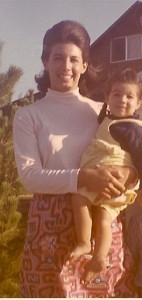 My mother, Dr. Rita Bonchek, is a psychologist who specializes in grief and loss. A career discussing death and dying, however, was insufficient preparation for hearing the words, “Mom, I have metastatic breast cancer.”
My mother, Dr. Rita Bonchek, is a psychologist who specializes in grief and loss. A career discussing death and dying, however, was insufficient preparation for hearing the words, “Mom, I have metastatic breast cancer.”
Mom and I have reacted very differently to the news of my stage IV cancer. I was online within days writing posts about the steps I was taking. I wrote immediately about how to help children in the days following a diagnosis like mine. As my readers know, I’m very open about this part of my life.
My mother, on the other hand, is much more private. She would never write a blog the way I do. She didn’t want to share this news with people; she wasn’t ready to talk about it. I respect her decision but that approach doesn’t work for me. Sometimes our different ways of thinking lead to disagreements. Despite our differences we always support each other.
I thought it might be helpful for readers to hear what she has to say about reading my posts. Some of us with cancer choose to be very public with our daily lives but our parents are often forgotten in the discussion. I think the timing of Mother’s Day weekend is perfect to share this piece. I love you, Mom (photo at left: 1970).
…………………………………….
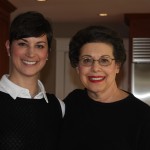 I am Lisa’s proud mother and I have followed her blog from its first day. As her mother, I read her blog from a unique point of view, and I want to share my perspective with you.
I am Lisa’s proud mother and I have followed her blog from its first day. As her mother, I read her blog from a unique point of view, and I want to share my perspective with you.
Those of you who are reading this blog follow Lisa and her incredible writing. It is her understanding of human behavior, her expression of feelings of her heart and thoughts of her mind that make so many people want another blog from her as soon as the one being read is finished.
Yet, as the mother of this outstanding-in-all-aspects daughter, my reading of Lisa’s blogposts is complicated because each piece contains an extra layer of heart-wrenching pain for me. Lisa’s blog is a precious sharing of her everyday life, of medical explanation and analysis of each and every test result, of measured consideration of her hopes, fears, etc. Parents rarely get the opportunity to get “up close and personal” to this extent with a child. As Lisa’s mother, knowing her innermost thoughts is a gift and a curse.
If you (or anyone else but Lisa) were writing about a life journey with a cancer diagnosis, I could handle reading about the physical assaults on your body and the emotional assaults on your psyche because I would be more objective and not involved in your everyday life. I could read your blog, feel empathy and sorrow for the diagnosis, but step away from it. However, I am enmeshed in Lisa’s writing.
Lisa’s father stopped having the blogposts sent directly to his e-mail because he was often caught unaware with heavy emotional subject matter arriving at inappropriate times. He now accesses the blogposts only when he feels emotionally prepared for whatever he may find.
While this would also be a very reasonable decision for me to make, I have the ambivalent feelings of wanting to be close and share every moment of what Lisa thinks and feels at that moment versus retreating from the declarations of how her life is now and her fears for the future for her and the family – her family and my family.
Lisa and I share the personality trait of always wanting to know the truth so we are as well prepared for the worst as we can be. Lisa and I promised each other that we would never withhold any information to protect each other. The honesty Lisa promised me is the honesty she has promised to all of you, her readers.
On one level, her blog reveals to me everything I want to know, but on another level what I unconsciously don’t want to know. This emotional see-saw of wanting to read it but not wanting to read it is a decision that I must make each time a new blog-post appears in my inbox.
Why is this “to know or not to know” decision so difficult for me? When I read Lisa’s writings, I imagine the sub-text that she does not reveal: how she is managing to keep her family’s lives as “normal” (whatever that means) as possible.
Lisa is, as most mothers are, the hub of her family’s life. When Lisa writes in a blog-post that she was very tired and rested for hours, I know that her closed bedroom door makes every family member who sees that closed door go into overdrive with founded or unfounded concern and fear.
Lisa and I share the goals to make the most of each day and to cherish and to love one another. These are life affirmations within our control when so much of life is out of our control. Share our goals as you and I, Lisa’s readers, benefit from Lisa’s greatest gift to us: who she is and how she lives her life, in sickness and in health.
August 2nd, 2011 §
I thought they would always be together. I thought it would be until the end. When I look back over the things I’ve written about my parents, a constant theme is always how I can’t imagine them without each other.
And yet, this week, my mother moved into her own condo and began her life apart from my father.
Their dynamic just was not working anymore; six months shy of their 50th anniversary, they’ve decided to separate.
I’ve known for a few months, and the children know now too. In fact, as I write this, my parents are (together) spending a week with Paige and Colin as they do each summer. Nothing, even the decision to move forward apart, comes in the way of that this year.
I’m still a child. Their child.
I’m learning that no matter how old you are it affects you; age is not a protective shield against the hurt that can accompany such changes. Now 42, I have two generations to consider: my parents and my children. At the moment my parents’ health is good; I’ve written before about my mother’s stage III cancer diagnosis six years ago (she is in remission). But I confess, even on their healthiest days I play the “what if” game. I feel I need to always be thinking about the future, making sure I have an escape route. Like a stewardess pointing with a flourish to an exit in the forward cabin, I need to show myself that there is always a way out, a plan should something go wrong.
Even in the face of truly excellent health we’ve learned that life can change in an instant; after all, Clarke’s mother was perfectly healthy when she was killed in a car crash almost two years ago. I did not have a “what if” mentally written for that circumstance– how could I? But I have seen the way a tragedy can change a life in a split second. I think my confidence in what the day will bring has been shaken; I no longer believe that the day shall end as it began, life bookmarked in its progress.
I love my parents dearly; I am as close to them as a child could be, I think. We laugh, we talk, we share. I wouldn’t have it any other way. But the fact we are so close means this new chapter of their lives affects me deeply. How can it not? The very foundation of home life I have know my entire life is gone. I’ve been married for fourteen years; I am not a naive child who thinks wanting to make it work is enough.
And so, I program my phone with my mother’s new contact information; she gets her own entry now. I order change-of-address cards for her, and return address labels. Information now needs to go to two places. Anecdotes about the children need to be recounted twice rather than hearing my voice echo on speakerphone in the kitchen.
I support their decision– how could I not? I want them to be happy, and to achieve this goal they must live apart. But my knowledge that it’s what is best doesn’t make the bitter pill any easier to swallow.
I know a lot about grief and loss. I know that it takes time. This loss is something I’m dealing with, and will continue to, day by day.
February 7th, 2011 §
I’ve written previously about my decision to have my ovaries removed two years ago in order to (hopefully) decrease the likelihood that my breast cancer will recur (“The Impetus of Fear”). Though I tested negative for the BRCA-1 and BRCA-2 genes, my hormone receptor positive cancer feeds off of the hormones that my ovaries produced. To significantly reduce the amount of those hormones circulating in my body (as a pre-menopausal woman of 38) I decided to have a salpingo-oophorectomy (surgical removal of my Fallopian tubes and ovaries). I recovered from the surgery itself within two weeks; the effects of plummeting into menopause overnight have been longer-lasting and in some cases, quite devastating.
As I do with almost any issue in my life, I have repeatedly talked to my mother, Dr. Rita Bonchek, about the ramifications of my decision. This angst has led to many talks about the difference between regret and guilt. As a psychologist specializing in issues of grief, loss, death, and dying for twenty years, she always has a keen ability to separate out what appear to be muddled feelings. She often has ways of explaining complicated topics in easy-to-understand terms and using real-life examples to illustrate her points. She and I have collaborated here to present some thoughts on these two emotions. The ideas on the differences between guilt and regret are hers; I have pushed her to explain things as fully as possible and helped with some of the re-writing.
We hope that they will help you to think more clearly about actions in your life and the emotions you have about them. We look forward to hearing your comments and any follow-up questions you have. Because my mom is not on Twitter, if you have any questions for her, it’s best to put them in a comment below; I’ll post her answers for everyone to read, too. This is meant as an introduction to these two emotions, not a comprehensive analysis of them.
………………………………….
People use the word “guilt” more often than is appropriate. Improperly using the word “guilt” can result in unnecessary emotional distress and harsh self-criticism. The word “guilt” refers to something you did, something which you feel you shouldn’t have done because it was morally or legally wrong. But what if the experience you feel guilty about was not something you caused or had control over? Then you would feel regret, not guilt.
Here is an actual situation: Ann was referred by her family doctor for grief counseling. She was unable to cope with her persistent feelings of guilt related to her husband’s death several months prior. Bob was diagnosed with a terminal illness and he was bed-ridden. He needed constant care and attention which was mainly provided for by his wife. Bob was hospitalized for three weeks prior to his death. Ann was with him throughout that time as well.
On the day of Bob’s death, his wife left the hospital room to use the bathroom. When she returned to the room, the nurse told her that Bob had died in her absence. Ann was overcome with feelings of what she termed “guilt” and punished herself for not having been with Bob at the time of his death. For months she could not function and was preoccupied with thinking how terrible she was in being absent when her husband died. She mentally punished herself for breaking the vow she had made to herself to be with him when he died. Instead of focusing on the 99% of the time she had cared for him while he was ill, she focused on the last minutes he lived.
Why shouldn’t Ann feel guilty? Because she did not do anything that caused her husband’s death; she was not there. If Ann had asked the nurse whether it was “safe” for her to leave for a few minutes and the nurse had cautioned her that Bob could die at any time, and then Ann chose to leave, then she could justly experience guilt because she ignored information indicating he could die during the time she was away. In this alternate scenario, Ann had the personal responsibility for making the decision to go, she had control of making the decision that resulted in her absence, and could therefore justly experience feelings of guilt. As a counselor, if someone is justifiably guilty for an action, I would advise them to make a confession, offer an apology, take responsbility, and — if possible– make reparations.
By disproportionately magnifying these few minutes to overshadow all of the months of care Ann had given Bob, the result was that she could not forgive herself. After discussing the difference between regret and guilt, Ann came to see that there was, in fact, nothing to forgive. She understood that she was only responsible for her own actions; Bob didn’t die because she left the room. By reframing the circumstances of Bob’s death, Ann was better able to properly grieve her loss and move on afterwards.
Though Ann did not experience guilt, she did have regret, a universal experience. Regret refers to circumstances beyond one’s personal control. An unidentified author defined regret as “distress over a desire unfulfilled.” Regrets can pertain to decisions made concerning: education (not getting a degree), career (working at a job that offered good income but no personal satisfaction), marriage (married too young), raising children (being too permissive), medical decisions (sterilization), etc. These and other decisions can be considered mistakes.
As an emotional response to a distressing experience, the sound of the word “guilt” is harsher and more of a self-reproach than the word “regret.” If you say, “I feel so guilty” you should make sure that the deed and circumstances surrounding it actually warrant your feeling of guilt rather than regret.
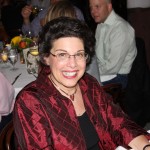 Dr. Rita Bonchek has a Ph.D. in educational psychology. She spent twenty years in private practice.
Dr. Rita Bonchek has a Ph.D. in educational psychology. She spent twenty years in private practice.
December 25th, 2010 §
My parents, on their honeymoon, in 1961:
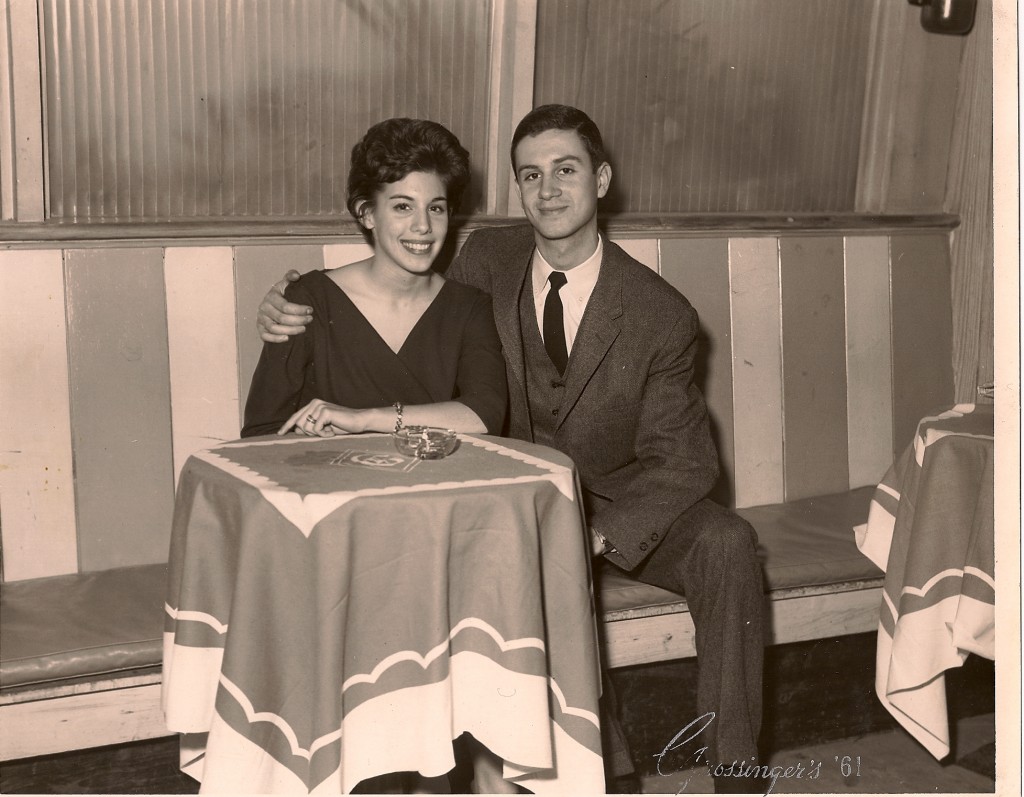
On October 24, 2008 the Bonchek College House at Franklin and Marshall College was dedicated. The building is a dormitory and part of the new residential system at my alma mater. On that night I stood and spoke about my parents; I wanted to show the personal side of these two wonderful people.
It was easy to write about my parents. They are both unique and talented individuals, and it is with great pride that I introduce them here to you. On Christmas Day, forty-nine years ago my parents were married. Staying married for forty-nine years is an amazing accomplishment; however, it is only one of the many ways my parents have been role models for me.
I struggled with how to honor my parents and their anniversary. Of course, the best way I know how is in writing. I re-read the speech I gave at the dedication and decided to share it here in honor of their special day. Mom, Dad… I never forget how lucky I am. I never forget what you have given me both in sacrifice and by example. It really is an honor to be your daughter.
Here is the text of the speech I gave, as it was written:
On Halloween night 17 years ago, my life changed. On that night, my best friend Alex Welch and I attended a costume party at Chi Phi Fraternity, right down the street. On that evening, she introduced me to a Senior on the swim team, Clarke Adams. Coincidentally, he had lived in South Ben during his time here, and we hit it off instantly.
Six years later, we were married here on campus in Nevin Chapel. It really does feel like things have come full circle to be here with my parents and my family to see our family name here on this building.
F&M obviously holds a special place in my heart for the people I met here. Franklin & Marshall also nurtured my mind as well. My education here, particularly the dedicated instructors in the Sociology department… Carol Auster, Joel Eigen, Katherine McClelland, and Howard Kaye, along with many others, really pushed me not just to learn, but to think. And if you know how to think, you can learn anything.
One person here really touched my mind and heart and though he’s miles away I would like to mention him. Professor Joel Eigen, my friend for 20 years, is away on sabbatical in Australia. As a high school senior here in Lancaster, I took one’s of Joel’s sociology classes. I then went on to Cornell University where I realized that the experience I had in Joel’s classroom really was true education, and I didn’t want to waste my remaining college years without that.
I transferred here for my last 2 years and worked with Joel as research assistant. He was a professor, a mentor, and a friend– all of which are still true today. I was in touch by email with him early this morning and told him how much he exemplifies the nurturing of the mind and person that happens here.
This coexistence of the head and heart applies not only this fine institution, but also to that of my own personal faculty– my parents.
My father, as those of you who know him can imagine, focused first and foremost on training my mind. At every opportunity, my father has been– and is– a teacher, an instructor, an educator.
When I asked my daughter Paige what she thinks of first when she thinks of Grandpa she said, “How long his answers are when you ask him a question.” That is certainly my father.
What her comment shows is that my father prizes knowledge– rational knowledge in particular. He takes the role of parent as a teaching one. He did this when I was 3, and he still does it now that I’m 39.
Now as a grandfather to 5 grandsons and 1 granddaughter, he still uses every opportunity to inform others. He is brilliant on a wide range of topics. He is, quite simply, the smartest person I know. He is also a clear and thoughtful writer and editor.
But what you may not see evidence of as easily is my father’s tenderness, his kindness, his softness. The experiences of the past two years have brought me evidence time and again how supportive, how giving, how dedicated my parents are, and given me countless opportunities to see the gentle side of my father.
I spoke at the outset about how my life changed when I met Clarke here all those years ago. Almost two years ago my life changed again when I was diagnosed with breast cancer. When I found out I needed chemotherapy as part of my treatment, my parents came to Connecticut for each round. They took care of not only the day-to-day parts of child care, but also the love and nurturing of my children that I could not do in the way I was used to.
On the morning of my second round of chemo, my hair began to come out in clumps. I had been waiting for it to happen, and I was ready. With the same electric clippers I used to cut my two sons’ heads, I went into the garage and started shaving it off. But I could not reach the back properly. I came in the kitchen and asked him to help. With quiet and serious strength, my father finished the job for me.
In my darkest moments, my most painful and distressful ones, it was often my father’s comfort which was the most touching. And when I think of the last 2 years, I am lifted in large part by the love and tender care my father has given to me.
He came to every doctor’s appointment. He changed my bandages after my surgery. And in a true display of love and confidence, he trusted me to make all of the medical decisions myself, and never told me what to do.
Dad demands the best from those around him. He inspires others to want to do their best in his presence. But for those like me who know him well, we know that his serious exterior hides a sensitive and loving father and grandfather. I feel fortunate to have him “on my team” and for the loving relationship we have today now that I am grown. No matter how old I get, though, I will always be his little girl.
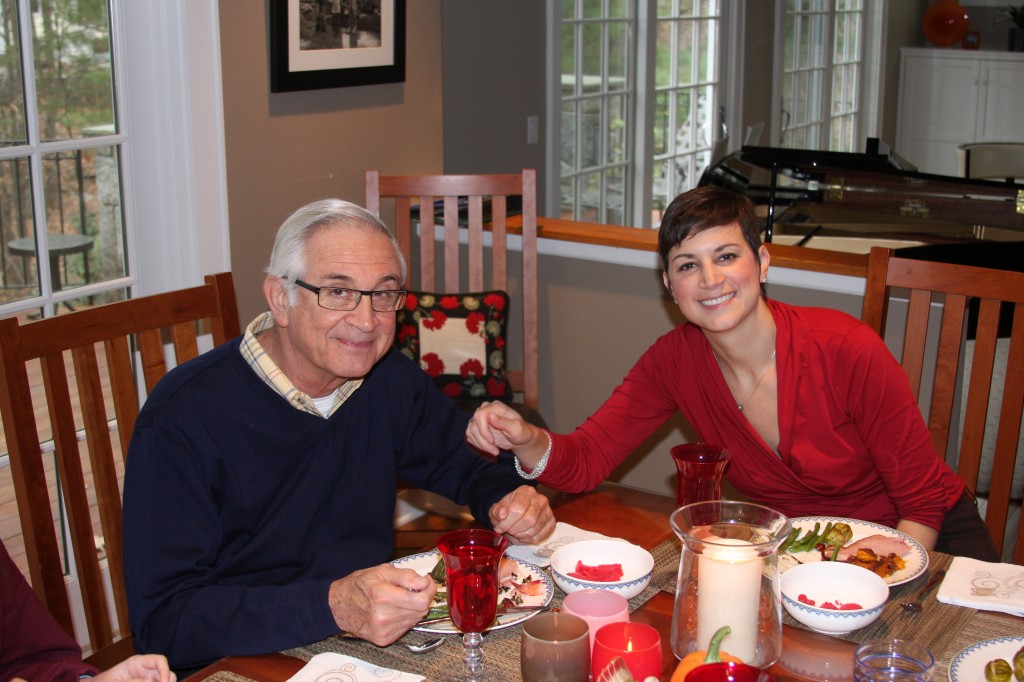
My mother’s public and private selves, on the other hand, have always been more congruous than my father’s. My mother is a softie through and through. It’s easy to see why he chose her to be his life partner. In addition to her selfless nature, she is smart, insightful, funny, supportive, and most of all, patient. My mother and I have a wonderful bond, a great connection. To this day when we say goodbye to each other at the end of a visit, we can’t look each other in the eye because we will both start to cry. Even now you will notice I am carefully avoiding her gaze.
We try to be strong for each other, but we don’t always do a good job. Our biggest problem is that we try to protect one another from harm, from trouble, from stress. My mother has often been overshadowed by my father’s strong presence. But those who have had the gift of her professional advice as a psychologist over the years know that she is a talented therapist and a caring listener. Quite simply, to know my mother is to love her.
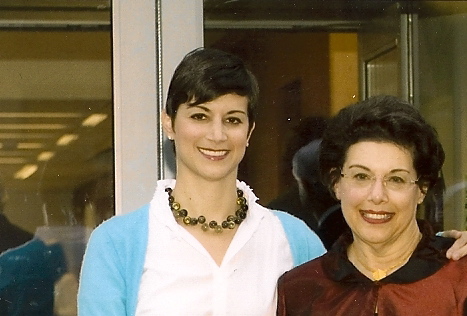
My parents have taught me great lessons. About moral standards, about confidence, about sharing the rewards of hard work. These are lessons my husband Clarke and I share with our three children. I never could have dreamed that on that night 17 years ago I would be here today, with my family celebrating this building and the people who made it possible.
Speaking about one’s parents is not hard– my brother Mark and I have been talking about my parents behind their backs for our whole lives.
On the other hand, speaking about one’s parents in their presence is a different story altogether. Rarely are we given the opportunity to compliment them in a public forum while they are still alive. I am thankful to have that opportunity today.
A good education provides a strong foundation for a person’s head and heart. A liberal arts education here at F&M nurtured my whole being, and allowed me to emerge with a stronger sense of self, of who I was in the bigger picture.
Similarly, my parents nurtured both my mind and my soul to instill the importance of education, of giving back to one’s community, and an appreciation for the role that social interaction can have on transforming the individual. The Bonchek College House is a perfect legacy for our family.
In closing, I would like to let you know that the Bonchek College House really is a dream come true for my family. After all of these years, we finally have a group of people consistently spelling our last name correctly…
I love you both.
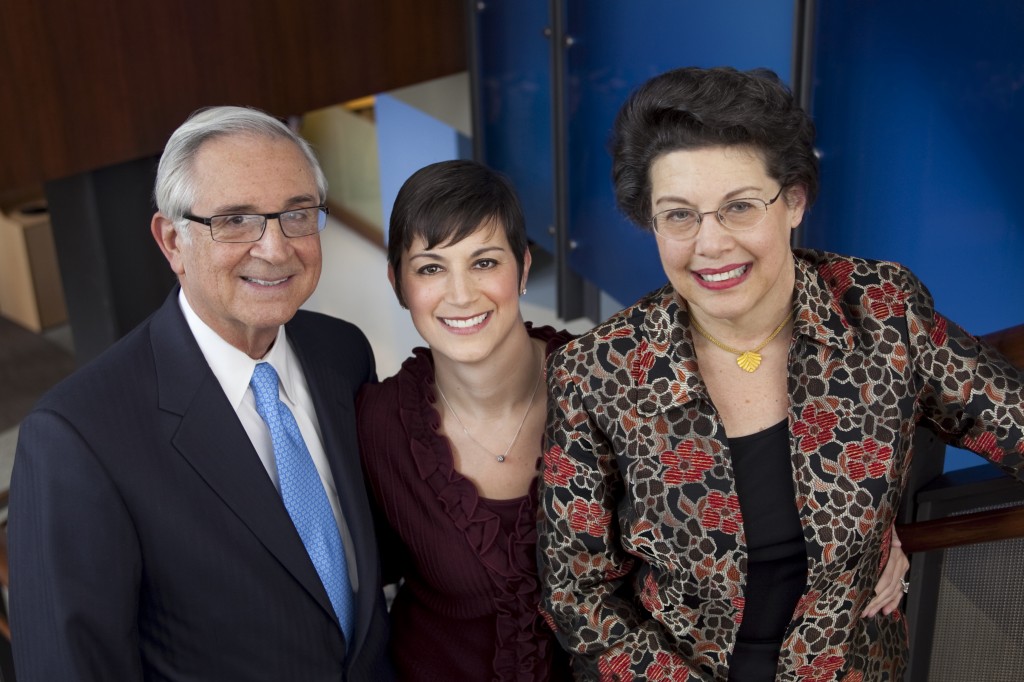
………………
So, congratulations, Mom and Dad, you made it to 49 years. Here’s to many more.
xoxo
December 8th, 2010 §
Today I was interviewed in The Washington Post about my perspective on the news of Elizabeth Edwards’s death. Melissa Bell’s article is entitled “Elizabeth Edwards and the cancer question.” Click on the title to read the piece on the Post website.
Thanks so much to all of you who read the two pieces I wrote about Ms. Edwards and passed them on to friends:
On Resilience and Why I’m Crying.
Your comments mean so much.
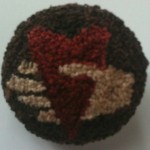
November 21st, 2010 §
Never did we think we would share the bond of cancer. It’s certainly not something any mother wants to have in common with her child. And I know (now that I am a parent myself) that it must have been harder for her to hear MY declaration of cancer even more so than her own.
She was a trailbreaker for me. Like the sled that gets sent ahead to smooth and mark the trail of the Iditarod (I have dogsledding on the brain currently), my mother laid tracks for me. She was diagnosed a few years before I was, and I watched as she dealt with her illness. On her “off” weeks from chemo, when she felt well enough, she always came to visit. I think she needed to see some of her grandchildren and remember why she was going through the difficult treatments. She was Nana, she was Mom… she wasn’t a cancer patient.
I had never known anyone with cancer. I had never seen what happens to someone during chemo. And, to be fair, I only saw her after the worst was over. Just like I did, when the time came, she retreated to her bedroom during the worst days and kept it a private matter. But on those alternate weeks, I watched my mother’s head go bald. I watched her body go hairless. I watched her weaken, and suffer. I saw her remove her wig once the children had gone to bed and put on a green turban to finally give her head a break after a long day.
But I also saw something else in my mother. I saw the unfailing determination to be strong. I saw her desire to protect those around her. I saw her selfless devotion to family, and the importance of putting on a brave face. Most of all, I saw the smile. The gorgeous smile that lights up a room, always with bright red lipstick. My mother was extra beautiful to me in her display of courage, conviction, and unwavering persistence.
Neither of us knew that she was actually teaching me by example; within a year of her hair growing back in, mine would be coming out. We had no way of knowing we would soon start trading books, articles, and reports on advances in oncology.
I have learned many lessons from my mother. But for today, the one I am thinking about is one of the most valuable. You never know who’s watching you. You never know what’s around the corner. You never know when it’s going to be YOU… when it’s going to be your turn.
Trailbreakers are all around us. We just need to watch and pay attention. We need to learn lessons where we can. We need to have reserves we can tap into. Like a fallout shelter stocked for an emergency, we need to have people we can call on, experiences we can draw on to reassure us when crisis strikes. My mother did that for me. When it came to be my turn, I wasn’t ready; I wasn’t prepared. I wasn’t strong or brave or tough. But I did know I could get through it. After all, she did, and just knowing that fact helped me. I got tougher. I got braver. I got stronger. But having watched someone close to me go though some of the same experiences meant a lot.
I don’t think of myself as a role model. But I also know the reality: some of my friends will eventually get cancer. And I hope that my experiences can help them get through it, and see that it can be done. One reason I have decided to be so open and public about my life is that I wish I had been able to connect to someone my age, and hear what she had to say. Cancer’s impact on me– the changes in my life, my body, my relationships with my spouse, children, and friends– cannot be underestimated. Two years after my initial diagnosis, I still have lots to work through.
“If you want to know what the road ahead is like, ask someone who is on her way back home.” I have been there, and feel it’s my duty to tell what I’ve seen.
 I’ve again invited my mother, Dr. Rita Bonchek, to write a piece for the blog. Her previous posts on the difference between guilt and regret, grieving the death of a parent, what it’s like to read my blogposts about cancer, and how to help children understand death have been well-received. As a psychologist specializing in grief and loss I think her perspective and ability to share insights are welcome additions to the posts I make. I know that she gains comfort from talking with other parents who have children with cancer and sharing their feelings about the way that cancer has affected their roles as parents (and often as grandparents). Her post appears below.
I’ve again invited my mother, Dr. Rita Bonchek, to write a piece for the blog. Her previous posts on the difference between guilt and regret, grieving the death of a parent, what it’s like to read my blogposts about cancer, and how to help children understand death have been well-received. As a psychologist specializing in grief and loss I think her perspective and ability to share insights are welcome additions to the posts I make. I know that she gains comfort from talking with other parents who have children with cancer and sharing their feelings about the way that cancer has affected their roles as parents (and often as grandparents). Her post appears below.








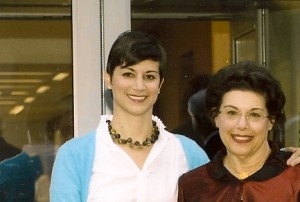
 Link to Twitter
Link to Twitter